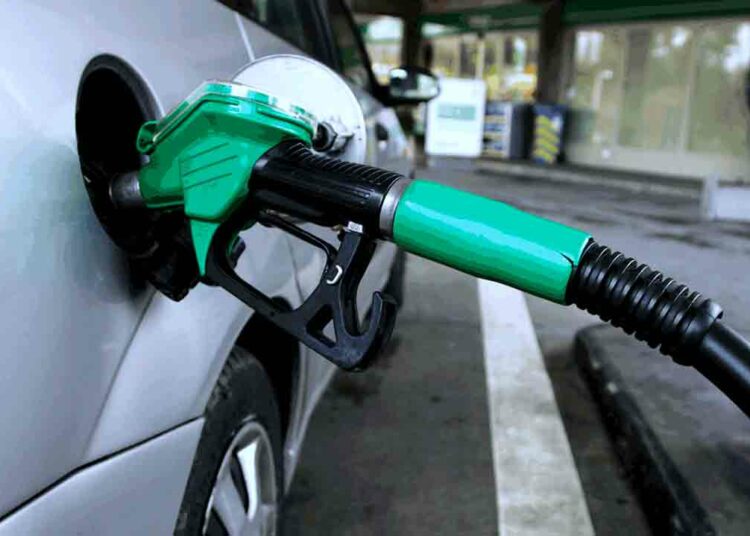Recently, the federal government announced a 15 per cent import duty on Premium Motor Spirit (PMS) and diesel. This decision has garnered both praise and criticism from various sources. Most supporters believe that Nigeria cannot continue to rely on imported petroleum products if it is ever to achieve energy security in the future. However, those opposed to it cite their concern that a protectionist policy like this can confer a monopolistic advantage on Dangote Refinery, especially now that it has unassailable dominance in the fuel energy sector with its 650,000-barrel-per-day capacity refinery, the single largest single-train refinery in the world.
As a newspaper, we hold that this move by the present administration is a good one and should be supported by well-meaning Nigerians. It signals a long-overdue rectification in Nigeria’s energy policy. For decades, cheap imported fuel has flooded Nigerian markets, strangling domestic refining efforts. However, by adjusting the cost of imports, the federal government is not merely trying to punish consumers but to to encourage local production, job creation, and self-sufficiency in fuel energy.
RELATED: Dear Mr President, Please Do Not Let This 15% Import Tariff Punish Nigerians Again
To appreciate the importance of this policy, one must recall that Nigeria, despite being one of the largest crude oil producers in Africa, used to import nearly all of its refined petroleum products. The system was also marred by fraud, as criminals inflated figures in what came to be known as the subsidy scam, for which some operators were successfully prosecuted and jailed. This paradox has drained national resources, exposed the economy to global price shocks, and weakened the naira through excessive foreign exchange demand. That was until Africa’s richest man, Aliko Dangote, built the largest refinery in Africa – a 650,000-barrel-per-day capacity refinery – and started supplying the products both locally and internationally. However, despite this refinery’s capacity to fulfil local demand, importers of petrol have continued to flood Nigeria with cheaper and substandard products.
While not dismissing the fear of monopoly altogether in the short term, however, monopoly thrives not because of tariffs, but because of weak competition. The way forward is to ensure robust oversight and a deliberate policy to expand local refining beyond a single dominant player. If the government creates a level playing field for all local refiners, the 15 per cent tariff will not lead to a monopoly, but instead create a healthy competition, innovation, and efficiency.
The advantages of this 15 percent tariff are many. It not only signals investors that Nigeria finally values its refining industry, but it also encourages modular refinery operators, new entrants, and financiers that imported products would not imperil their investments. This reassurance is crucial. Investors will only commit capital to local refining if they believe the policy environment protects them from the volatility of cheap imports. By guaranteeing that local refiners can operate profitably, the policy lays a foundation for long-term energy security.
However, the policy must be backed by stable crude allocation, transparent pricing, and a predictable regulatory framework. The government must also ensure that smaller refineries have fair access to feedstock, finance, and infrastructure.
As for fears of a Dangote monopoly, a strong competition policy can guarantee that the benefits of industrialisation do not translate into market manipulation.
In this wise, regulatory authorities like the Federal Competition and Consumer Protection Commission (FCCPC) and the Nigerian Midstream and Downstream Petroleum Regulatory Authority (NMDPRA) must be alive to their responsibilities to ensure fair play while encouraging investment. They must constantly monitor pricing practices, licensing procedures, and supply agreements to ensure fairness across the value chain. Transparency and accountability will reassure the public that the tariff is not designed to favor one company, but to benefit the entire nation.
It is the government’s responsibility to take decisive action regarding the country’s four moribund refineries. Huge sums spent on Turnaround Maintenance (TAM) have not yielded any tangible results. We suggest that they are either sold to competent investors or revitalised and converted into competitive public-private ventures that complement, not compete destructively with, private investment. Reviving or privatising these refineries would broaden the domestic refining base and ensure that no single entity dominates the market. It would also create healthy competition that improves product quality and pricing.
Despite concerns about the initial hike in fuel prices when the duty comes into effect, in the long run there is little doubt the 15 per cent import duty is a step toward reclaiming control over Nigeria’s energy future. It will not only discourage foreign imports but also encourage the dozens of those with refining licenses to go into production without the overhanging threat of cheap local refiners taking up the opportunity of local supply. Short-term pain is sometimes necessary for long-term gain. In this case, a brief period of adjustment will pave the way for a stronger, more self-reliant energy sector that serves Nigerians first.





